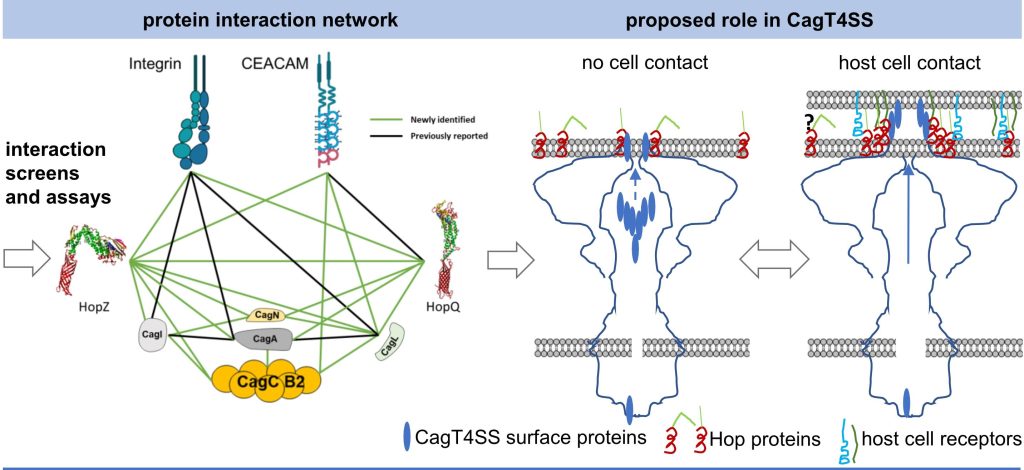New publication in microLife
A network of protein interactions between the H. pylori Cag type IV secretion system and outer membrane proteins
Scientists at the Max von Pettenkofer Institute led by LMU professor Dr. Christine Josenhans have discovered new interactions of the H. pylori type IV secretion system that are of utmost importance for its function in a large-scale protein-protein interaction study. First author Felix Metz, a doctoral researcher in the “Infection Research on Human Pathogens@MvPI” graduate training program, together with postdoc Dr. Simon Bats and other members of the Josenhans research roup, in cooperation with Prof. Sebastian Suerbaum, Dr. Wolfgang Fischer (MvPI), and external partners from the Protein Biochemistry Group at the LMU Gene Center (Prof. Karl-Peter Hopfner) and Dr. Laurent Terradot, group leader at the University of Lyon, show that there are significantly more interactions between the bacterial surface proteins of the secretion system and human proteins on the cell surface than previously assumed. The authors were also able to show that not only the secretion proteins themselves, but also outer membrane proteins of the bacteria are directly involved in multiple functional interaction networks between the secretion system and the host cell. The cag pathogenicity island and the secretion system it encodes play a major role in the development of cancer and modulate the human immune response to the chronic pathogen H. pylori, making a better understanding of the function of this secretion system one of the most important goals of H. pylori research worldwide.
The work was published in the renowned European journal microLife and is freely available at the following link
https://academic.oup.com/microlife/article/doi/10.1093/femsml/uqaf027/8275745


